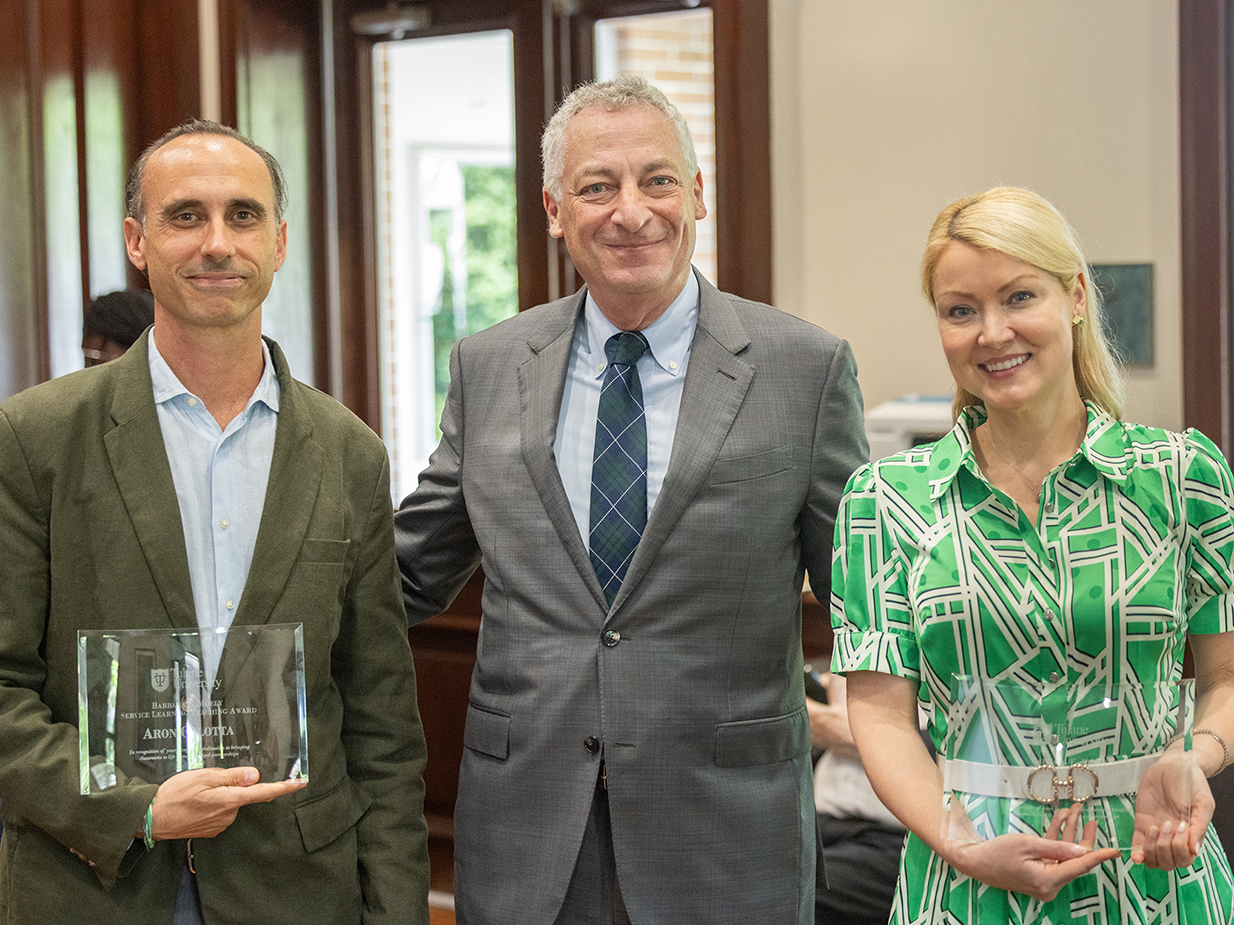Two SSE professors win 2025 Barbara E. Moely Service Learning Award for community impact
When Katherine Raymond and Aron Culotta, both professors in the Tulane University School of Science and Engineering, learned that they would be receiving a 2025 Barbara E. Moely Service Learning Teaching Award from the Center for Public Service, the two colleagues had similar reactions.
Although thrilled with the honor, they were quick to credit others. “I think this award is really a reflection of the dedication of students,” said Raymond, a senior professor of practice and associate chair of biomedical engineering.
“This recognition reflects the collaborative efforts between our students, faculty and community partners,” said Culotta, an associate professor of computer science.
The Barbara E. Moely Service Learning Teaching Award is Tulane’s highest honor for faculty in community-engaged scholarship. It is named for professor emerita Barbara E. Moely, a psychology professor who founded service learning at Tulane in the 1990s with the belief that such learning creates civically conscientious and compassionate leaders through community partnerships.
Culotta, director of the Center for Community-Engaged Artificial Intelligence, has partnered with Court Watch New Orleans to use artificial intelligence to develop a data analysis platform to make the New Orleans criminal court system — and eventually legal systems nationwide — more efficient and transparent.
Raymond partnered with MakeGood NOLA to design and produce pediatric wheelchairs, also called mobility trainers, to help children with physical challenges build independence and strength as they prepare for real wheelchairs.
“What I’ve enjoyed most in working with service learning at Tulane is how student-driven these efforts are and how much our students’ passion shapes what is possible,” Raymond said.
She said the toddler mobility trainer project is a perfect example of how students’ dedication to the work has inspired others in the community to get involved by providing fabric, sewing skills and financial support.
“In addition to the hands-on work that students can take pride in, the impact has expanded, and many more can now feel they are part of this success," Raymond said.
Culotta is leading a project that has both students and researchers developing a digital tool to collect and analyze court data.
"Together, we're developing an AI-driven data analysis platform that aggregates court records, volunteer observations, and public records to identify trends in the New Orleans criminal court system,” Culotta said. “This initiative aims to enhance transparency and accountability, not just locally but as a model for jurisdictions nationwide.”
He said the project exemplifies CEAI’s goal of integrating artificial intelligence research, teaching and community outreach. “Students get experiential learning opportunities by working closely with local organizations to solve real-world problems using state-of-the-art AI technology,” he said.
CEAI has several other projects in the works, including auditing AI-based hiring algorithms, developing AI tools to track activity at New Orleans City Council meetings, improving micro-lending effectiveness and tracking public health using online media.
Raymond’s students also have other projects in progress, among them working to 3D print prosthetics for war-wounded amputees in Sierra Leone and, through Tulane’s STEM program, teaching local high school students the engineering design process.
“Upon graduation, our students are to ‘act and lead with integrity and wisdom,’ as our Tulane mission states,” Raymond said. “I believe that when our students feel part of the community, and know that they can do something to help, they will carry that with them.”

